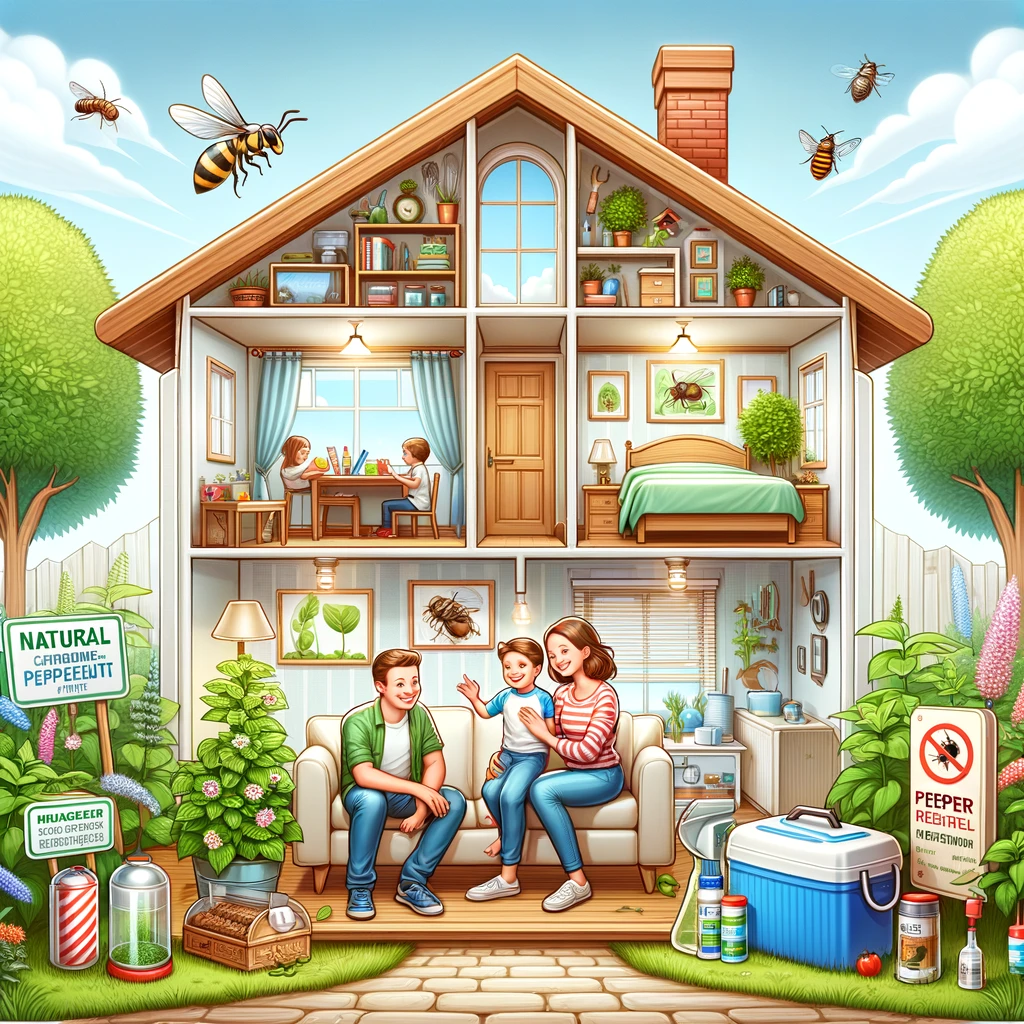Pests are an unwelcome presence in any home, posing health risks and causing damage to property. Understanding and implementing home pest control best practices can significantly reduce or eliminate these risks. This guide offers comprehensive insights into effective pest management strategies that every homeowner can apply.
Understanding Pest Control
Types of Common Household Pests
Pests vary widely, but the most common household invaders include rodents, cockroaches, termites, ants, and bedbugs. Each pest has specific behaviors and requires different management strategies. Knowing what you’re dealing with is the first step toward effective control.
The Importance of Regular Pest Inspections
Regular inspections help identify potential pest problems before they become severe. A thorough inspection involves checking all areas of the home, paying special attention to damp locations, food storage areas, and entry points.
Preventative Measures for Home Pest Control
Sealing Entry Points: A First Line of Defense
Preventing pests from entering the home is crucial. Seal cracks, install door sweeps, and repair screens to keep pests out.
Natural Repellents and Their Benefits
Natural repellents are a safe and eco-friendly way to deter pests. Ingredients like peppermint oil, vinegar, and diatomaceous earth can repel various pests without the harmful effects associated with synthetic chemicals. These natural solutions not only keep your home pest-free but also maintain a safe environment for children and pets.
DIY Pest Control Solutions
Homemade Pest Traps
Creating your own pest traps is an effective and economical method of managing infestations. For instance, a simple mixture of sugar, water, and boric acid can create an effective ant trap, while apple cider vinegar and dish soap can attract and drown fruit flies.
Safe Use of Pesticides at Home
While DIY solutions are helpful, some situations may require pesticides. It’s crucial to use these chemicals safely: follow the manufacturer’s instructions, wear protective gear, and ensure proper ventilation. Opt for products that are specifically labeled as safe for indoor use.
Professional Pest Control Options
When to Call a Professional Pest Controller
If DIY methods fail or if an infestation becomes severe, it may be time to call a professional. Professionals can offer more effective solutions and can handle large-scale infestations or pests that are difficult to eradicate, such as termites.
What to Expect from a Pest Control Service
Professional services typically start with an assessment of the infestation, followed by a treatment plan tailored to your home’s specific needs. Expect follow-up visits to ensure that the pest problem is thoroughly managed.
Long-term Strategies for Pest Management
Integrative Pest Management Techniques
Integrative Pest Management (IPM) is a holistic approach that combines various management strategies to minimize pest damage in an environmentally sensitive manner. This method involves monitoring pests, using non-chemical controls as the first line of defense, and applying chemicals only when necessary.
Monitoring and Maintenance Tips
Regular monitoring and maintenance are key to successful long-term pest control. This includes periodic checks of pest-prone areas, proper storage of food, and maintaining cleanliness to discourage pests from settling in your home.
Eco-friendly and Sustainable Pest Control Methods
Benefits of Eco-friendly Approaches
Eco-friendly pest control methods not only minimize environmental impact but also reduce the health risks associated with traditional chemical treatments. These methods can be just as effective as conventional approaches and are ideal for families looking for safer pest control alternatives.
Examples of Green Pest Control Techniques
Innovative green techniques include the use of pheromone traps, biological controls like introducing natural predators, and botanical insecticides that are less toxic to non-target species compared to synthetic chemicals.
Home Pest Control Best Practices
Regular Cleaning: A Key Strategy
Maintaining cleanliness is perhaps the most effective pest control method. Regularly vacuuming, wiping down surfaces, and disposing of garbage promptly can greatly reduce the likelihood of pest infestations.
Educating Family Members on Pest Control
It’s important that all household members understand and participate in pest control practices. Educating your family about the risks associated with pests and the simple steps to prevent them can reinforce your home’s defenses against infestations.
FAQs on Home Pest Control: What are the first signs of a pest infestation in a home? How often should I conduct pest inspections? What are the safest pest control methods for homes with children and pets? Can DIY pest control be as effective as professional services? What are the best natural repellents for common household pests? How can I make my home less attractive to pests?
Effective home pest control involves a combination of knowledge, preventative measures, and timely intervention. By understanding the habits of common pests, utilizing both DIY and professional resources, and maintaining a clean and secure environment, homeowners can protect their dwellings from unwanted guests. Implementing the best practices outlined in this guide will help ensure that your home remains safe and pest-free.

